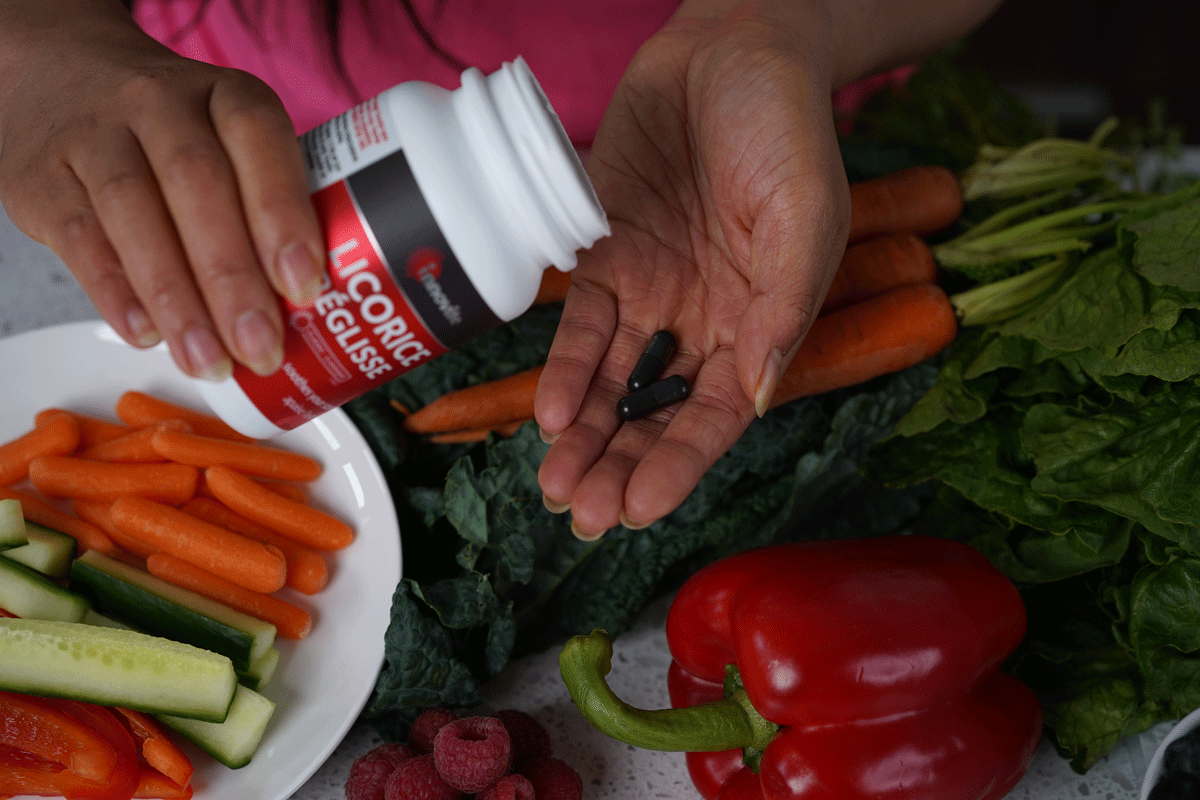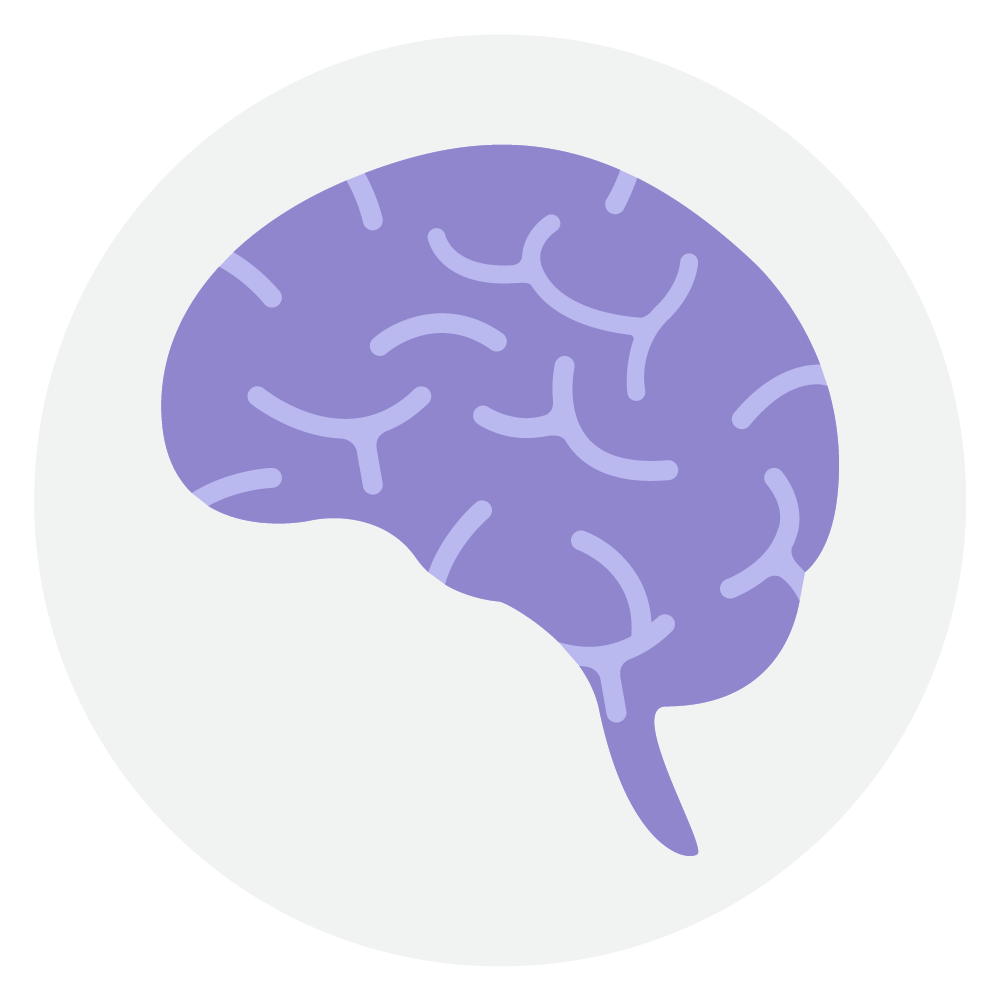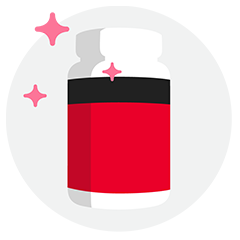Supporting your liver for healthy detox

Juice cleanses and trendy detoxes promise to facilitate weight loss and “detoxify” the body, but it’s not as simple as it seems. Detoxification involves more than just restricting unhealthy foods or forgoing food altogether. It’s an ongoing process that your body must undergo daily to get rid of any metabolic by-products, excess hormones, pathogens and more.
Our body’s detoxification organs (the liver is only one of them!) are working 24/7. Without our natural detoxification processes, our other bodily processes would not run as smoothly. Supporting your liver with nutrients and healthy habits will lay the foundation for healthy everyday detoxification. Read on to learn how you can help your liver thrive.
The many responsibilities of your liver
Flushing out waste
The liver is responsible for breaking down harmful substances from foods we consume into compounds that leave the body, either through bile or urine. Bile is a digestive fluid that is stored in the gallbladder and released by the liver. Once food passes through the small intestine, the liver secretes bile which carries away any waste and broken-down fatty acids, eventually exiting the body as feces. If compounds are leaving through the bloodstream, they are filtered by the kidneys (another important detox organ) and excreted as urine. In both cases, the liver is vital in making sure all waste is properly removed from your body.
Producing essential hormones and enzymes
In addition to removing waste, the liver is also responsible for producing important substances our bodies need on a regular basis. For instance, your liver regulates cholesterol production, which we need in fine balance. Too much cholesterol can lead to chronic inflammation and a higher risk of cardiovascular disease (CVD), while too little cholesterol can lead to insufficient production of vitamin D and hormones like estrogen, progesterone, cortisol and testosterone.
Fuelling your energy levels
After you eat, the sugars broken down from digestion can be used to generate energy or be stored for later use. Depending on what your body needs in the moment, your liver will store or release glucose (sugar) to be used as energy. When you fast or go a few hours between meals, your liver will break down these sugars or convert other compounds into sugar and energy, through a process called gluconeogenesis. You have your liver to thank for steady energy throughout the day!
Factors that lead to an unhealthy liver
Since our liver has numerous daily responsibilities, some of our daily habits can increase its burden and reduce its functionality. The goal is not to get rid of all the toxins in our life, but to be aware of what we can do to support our liver in its roles.
Alcohol in excess
Like many organs in the body, the liver can become overworked. Alcohol in particular is a toxin that can take a heavy toll on the liver, which processes over 90% of the alcohol we consume. Long-term and overconsumption of alcohol can damage the liver cells and lead to fatty liver disease (scarring of the liver) or cirrhosis (scarring that can lead to serious liver damage). Health Canada recommends that adults should limit their alcohol intake to 2-3 drinks per day.
An inflammatory diet
If you don’t drink alcohol, is your liver still at risk of damage? It might be. Non-alcoholic fatty acid disease (NAFAD) is becoming increasingly more common. Alcohol is not the only substance that harms the liver – when you eat an inflammatory diet with lots of processed foods and have high markers for cholesterol, blood pressure and triglycerides, your risk for liver damage increases. This is because processed foods tend to be high in sugar, trans fats, and refined carbohydrates, which can increase inflammation within our bodies. Those who skip out on alcohol may still experience liver damage symptoms such as extreme tiredness, unexplained weight loss and pain in the liver area (underneath the right rib cage).
Supporting your liver naturally
Your liver is responsible for consistently detoxifying waste products, and we need a strong, healthy liver to help us feel great! Try to keep in mind that a “liver detox” isn’t always a quick fix for weight loss or an overindulgent weekend. Supporting your liver daily will lessen its burden so it can more efficiently remove toxins from your body. In turn, you may feel more energized and experience better digestion.
The inner workings of your liver
The liver removes toxins from the body in two steps: phase 1 and phase 2. And each phase requires different nutrients to function effectively.
Phase 1 involves a group of enzymes that work to directly neutralize the toxins or transform them into intermediary substances. Phase 2 then alters the chemical structure of these substances to make them either water-soluble or fat-soluble. This allows the body to excrete them easily through urine or feces. It is important to note that the products from phase 1 are intermediates and can often create free radicals that damage other cells.
If the liver doesn’t have enough nutrients to complete the process, it can be stuck in phase 1, causing inflammation and tissue damage. And that’s where eating a well-rounded and nutritious diet can come in handy!
Which nutrients promote a healthy liver?
Our liver is at the forefront of regularly keeping our bodies toxin-free. So naturally, it needs plenty of help from our diet.
Each phase can benefit from its own set of specific nutrients. For example, phase 1 requires and benefits from nutrients like vitamin C, vitamin E, B vitamins, and magnesium. If you’re looking to increase your intake of these nutrients, try incorporating foods like grapefruit, turmeric, and avocados into your diet.
For phase 2, try to load up on foods rich in amino acids and sulfur. This includes eggs, cruciferous vegetables (broccoli, cauliflower, bok choy), garlic, onions, and grass-fed beef.
When it comes to general liver support, there are a few key nutrients that can help. Consider incorporating omega-3 fatty acids, licorice, and olive leaf extract into your daily routine.
Omega-3 fatty acids
Krill is a tiny shrimp-like marine animal and is naturally full of omega-3 fatty acids (EPA and DHA) and a powerful antioxidant called astaxanthin. This antioxidant protects the stability of the omega-3s and prevents lipid oxidation. Their natural triglyceride form makes it easily absorbed and can be readily incorporated into liver cell membranes to protect them from damage. Studies show that krill oil supplementation can even decrease liver fat and reduce the risk of non-alcoholic fatty liver disease.
Licorice

Licorice is an herb that is shown to have a protective effect against alcohol-induced liver injury, thanks to its anti-inflammatory and antioxidant effects. Our Licorice + Activated Charcoal includes 225mg of activated charcoal, which physically binds to toxins like metabolic waste, drugs, and even pathogens from food poisoning. The combination of licorice and activated charcoal aids in detoxification, while soothing the digestive tract and preventing stomach discomfort.
Olive leaf extract
Olives alone have many antioxidant effects, and are well-known as a staple in one of the healthiest diets in the world, the Mediterranean diet. Olive leaf extract has even higher levels of antioxidants. It contains polyphenols such as oleuropein and hydroxytyrosol that have been shown to reverse liver inflammation and oxidative stress. When taken as a supplement, olive leaf extract can protect liver cells from damage while reducing liver disease factors such as diabetes and cardiovascular disease. This formula contains added zinc for even more anti-inflammatory and antioxidant effects!
Liver-loving habits
In addition to a healthy diet, there are some other ways you can help your liver. Here are a few to get you started.
Use a castor oil pack
This unique oil contains ricinoleic acid, an omega-9 fatty acid that decreases inflammation, and quercetin, a natural flavonoid that protects against oxidative damage. Castor oil packs are simple – pour cold-pressed castor oil onto a flannel that you place on your liver, apply a heating pad and allow the oil to absorb for the next 20 minutes. The pack can be used therapeutically three times a week to improve digestion and detoxification.
Avoid questionable chemicals
Many synthetic ingredients in conventional beauty and personal care products contain ingredients known as “endocrine disruptors”. Long-term exposure can negatively affect the balance of your hormones. We are surrounded by dozens of these products every day; it’s impossible to completely eliminate the toxins. The best thing you can do is to start slow. The next time you buy a new product, take a look at the ingredient list and verify that it does not contain these harmful chemicals:
- Triclosan
- Fragrance
- Polyethylene glycol (PEG compounds)
- Phthalates
- Parabens (methyl-, isobutyl-, proply- and others)
- Formaldehyde
- Hydroquinone
- Oxybenzone
- BHA and BHT
- Ethylenediaminetetraacetic acid (EDTA)
- Benzalkonium chloride
Your liver plays a very important role in keeping you healthy and toxin-free. Start supporting your liver today by incorporating key nutrients into your diet and practicing daily healthy habits.






